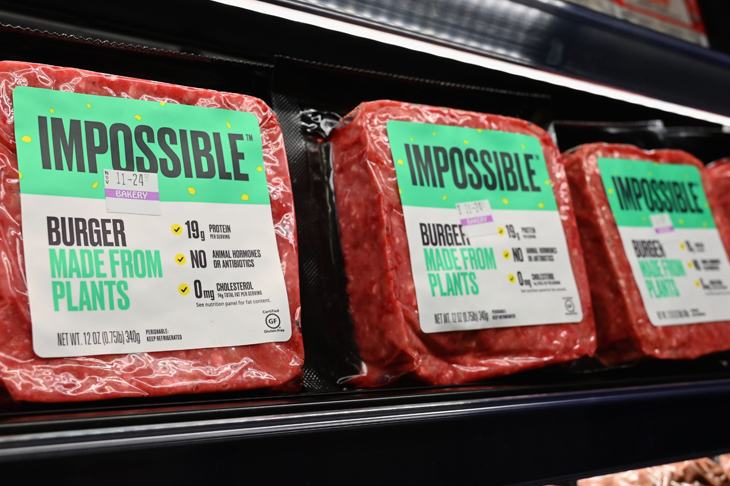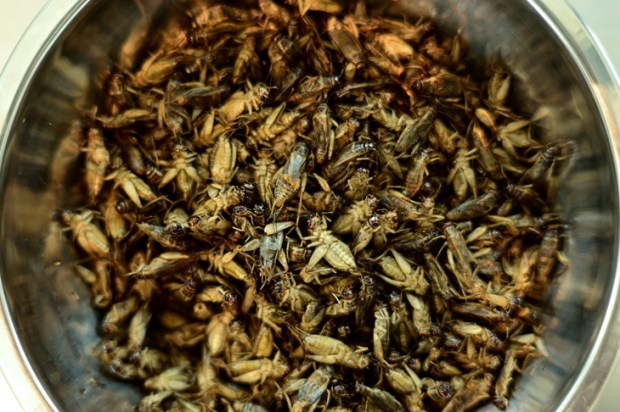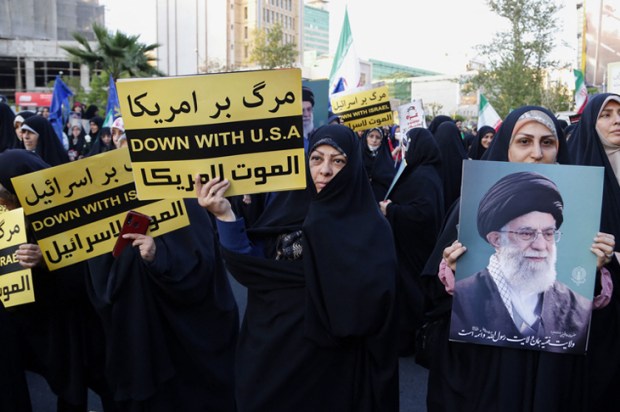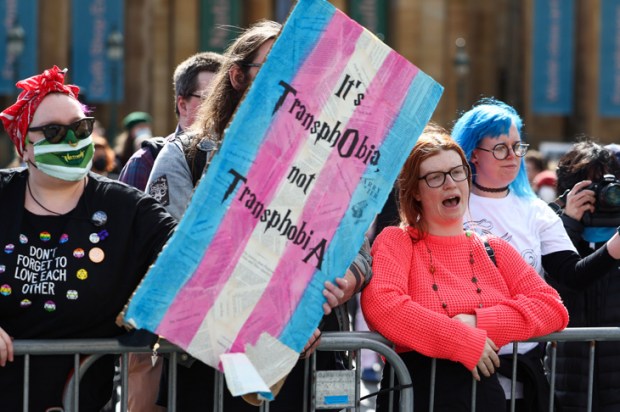The news that an executive in a fake meat company allegedly bit off the tip of the nose of a man in a road rage incident leaves a bad taste in the mouth of any self-respecting vegan. What came over Doug Ramsey, chief operating officer of Beyond Meat, a company championed by Bill Gates and celebrities such as Snoop Dogg, Kim Kardashian and Leonardo DiCaprio in 2019, but whose shares had taken a nose-dive even before Ramsey’s snack attack?
Beyond Meat was founded in 2009 by Ethan Brown who wanted to revolutionise the meat supply chain with a portfolio of fake meat products. Brown’s motivation for starting the company was to fight climate change by reducing global cow flatulence. The United Nations Food and Agriculture Organisation (FAO) claims animal agriculture is responsible for more than 14 per cent of global greenhouse emissions, with beef and dairy livestock accounting for 65 per cent of those emissions.
Climate activists also claim that livestock farming takes up too much land and water to produce enough food to feed the growing global population which is why they argue the only animals people should eat are insects.
In reality, all that is needed to feed a growing global population is to make agriculture as productive in developing countries as it is in the developed world. Yields on conventional crops have been rising at one per cent or more per annum and have been for decades. The developing world could dramatically increase yields in existing farms just by applying existing first world farm management practices. In addition, around 50 per cent of food produced in the world is wasted, mostly in the developing world due to lack of storage facilities and inefficient distribution systems which means that it ends up being eaten by bugs. With proper infrastructure, instead of eating bugs, as the FAO and the World Economic Forum advocate, we could eat the food that the bugs are eating.
Still, those sorts of incremental changes are of no interest to celebrity revolutionaries. With the global market for meat substitutes predicted to grow to more than $230 billion dollars by 2030, Brown’s fake meat protein wouldn’t just be good for people and good for the planet, it would be good for profits. Beyond Meat shares would be gilt-edged because they were guilt-edged.
Gates provided venture capital funding Beyond Meat’s shares, priced at $25 on the day of the initial public offering in April 2019 and soared to over $223 in the first three months. In February 2021, Gates was singing Beyond Meat’s praises proclaiming ‘all rich countries should move to 100 per cent synthetic beef’. ‘You can get used to the taste difference,’ he enthused, claiming that the ‘green premium is modest enough that you can sort of change the (behaviour of) people or use regulation to totally shift the demand’.
Using regulation to shift demand is a business model that has been remarkably profitable for Gates. His $55 million investment in 3.1 million shares of BioNTech in September 2019 was worth $1.7 billion by August 2021 thanks to mandatory vaccination policies. So far, however, he has not persuaded governments to outlaw meat consumption or mandate fake meat patties.
Perhaps that’s why, despite claiming that Beyond Meat had ‘a quality road map and cost road map’ that made it ‘totally competitive’ in the move to a meatless future, Gates had already cashed out most of his investment in 2019 selling $28 million worth of shares. No doubt his endorsement in February 2021 helped keep the price high a while longer. Did he still have a few shares to sell? A case of pump and dump? What is certain is that from June 2021, despite Gates’ ringing endorsement, Beyond Meat’s shares started an inexorable decline from $150 to around $15 a share this month.
Yet when Ramsey, the head of retail poultry at Tyson Foods was poached in December 2020 to manage Beyond Meat’s fast growing relations with fast-food companies – Taco Bell, McDonalds, KFC, Panda Express and Pizza Hut – the company’s prospects looked great. With his prior experience as president of Tyson’s global McDonalds business, Ramsey was quite a catch.
Yet as 2021 wore on, the company’s sales, which had been expanding at triple-digit rates, slowed significantly as rampant inflation, ironically driven by President Biden’s green agenda, ate away at Americans’ disposable income forcing them to eat cheaper food. McDonalds launched its Beyond Meat McPlant Burger in Veganuary 2022 but the deal dumped as a nothing burger with underwhelming sales of only selling 20 McPlants per day, instead of the targeted 40-60. A major complaint was that fake meat was more expensive than the real thing. The company reported larger-than-expected second-quarter losses and a gross loss of $6 million.
What drove Ramsey’s snack attack? Cut-throat competition in climate-friendly fast food? The dog-eat-dog dynamics of declining market share? Nobody knows (or nose). Scoffing on a passing snout is a whole new take on ‘fast’ food but it’s hardly affordable. Ramsey was released on a $11,000 bond putting his nasal nugget beyond the price point of the average punter and that’s before calculating additional expenses. Will his aperitif ask him to cough up for plastic surgery and compensation, costs that are not to be sneezed at.
The prospects for Beyond Meat do not look tempting. Its shares have fallen 75 per cent since the start of the year bringing its market value down to less than a billion dollars from $13.4 billion only three years ago. The takeaway from some analysts is that with anaemic growth in a lean market, Beyond Meat may be beyond saving. Certainly it is beyond Ramsey, suspending him indefinitely. As for Gates, it seems he isn’t actually beyond meat. In July 2022, his foundation donated over $3.5 million to Nindooinbah, a Queensland cattle station that breeds top quality beef cattle breeding stock. But as for any comment from Gates on the tough times for fake meat. Crickets.
Rebecca Weisser is an independent journalist. Like what you read? Consider supporting her work at PayPal.
Got something to add? Join the discussion and comment below.
Get 10 issues for just $10
Subscribe to The Spectator Australia today for the next 10 magazine issues, plus full online access, for just $10.
You might disagree with half of it, but you’ll enjoy reading all of it. Try your first month for free, then just $2 a week for the remainder of your first year.














Comments
Don't miss out
Join the conversation with other Spectator Australia readers. Subscribe to leave a comment.
SUBSCRIBEAlready a subscriber? Log in